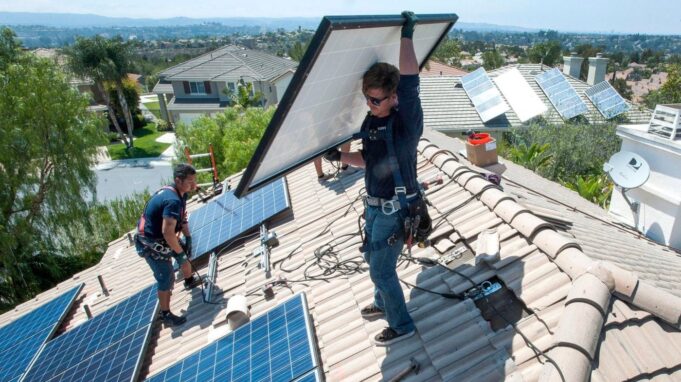Written by Kelly G. Richardson
As the cost of energy escalates seemingly weekly, an increasing number of HOA homeowners want to install photovoltaic systems on rooftops. Here are some key considerations for boards to consider.
Is the HOA prepared? Reasonable rules regarding solar installations will help both homeowners and the HOA. Such rules must be carefully crafted to ensure compliance with Civil Code Sections 714, 714.1, and 4746. Such rules should address issues including:
Time limits. Under Civil Code Section 714(e)(2)(b) if the application is not approved or denied within 45 days (assuming there are no pending unanswered questions), the installation is DEEMED APPROVED. Have the time limits in the rules.
Code compliance. Civil Code Section 714(c) allows HOA rules to require compliance with health and safety and electrical codes.
Roof repair. The HOA may require that the applicant pay for roof component damage from the installation and ongoing use of the system, per Civil Code Section 714.1(a). This may also include the extra cost of removing the system when the roof needs maintenance or replacement.
Common area roofs. If the installation is in a condominium, in which the roof is normally common area owned in common by all owners, Civil Code Section 4746 allows applicants to be required to submit a “solar site survey” plan and to notify other owners in the same building.
The solar site survey plan will be quite simple if the system is only to be installed on a roof or carport serving a single residence, but a multi-story apartment-style condominium building will need a more sophisticated plan showing that the applicant is proposing only to use their fair share of the usable space on the shared common roof.
Recordable agreement. HOAs under Civil Code Section 4746(b) can require that subsequent owners of the applicant’s unit be notified of the ongoing obligations regarding the system installed on a common area roof. This is normally accomplished by a written agreement stating the required conditions that is filed with the County Registrar/Recorder (“recorded”) on the unit in question. This will also automatically notify later unit owners that they are bound by the agreement.
Insurance. If the system is to be installed on a common area roof, the HOA can require proof of insurance (Civil Code Section 4746(a)(2)), which is annually updated to the HOA.
Leasing. Some companies offer to install solar systems under a lease. The installation of a leased system on common area roofs can create huge problems for the HOA and for subsequent unit owners. The leasing company is not subject to the governing documents since it is not a member.
After installing its system, leasing companies often sell the lease to finance companies. If the unit sells, the leasing company must consent to the new lessee.
The seller could be liable for the cost of the lease if the buyer does not assume that liability.
There is nothing in the applicable statutes that requires the HOA permit leased systems to be installed upon common area roofs. The potential problems for the HOA and the future owners can be prevented by not permitting leased equipment to be installed upon common area roofs.
Solar energy generation is the present, not the future. Be prepared with reasonable written policies.
Coming up next week: More reader questions on solar
Kelly G. Richardson, Esq. is a Fellow of the College of Community Association Lawyers and Partner of Richardson Ober DeNichilo LLP, a California law firm known for community association advice. Submit questions to Kelly@rodllp.com .
Shared from OC Register











